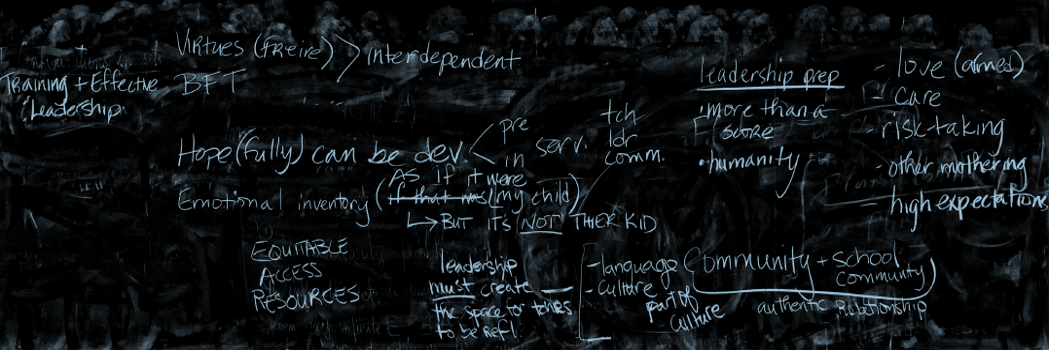A quote that resonated deeply with me this week was, “Those closest to the problem are closest to the solution. If Black lives matter, so should Black thought, especially when it comes to any agenda for educational equity or social justice in schools. Black people have the answers. Who will listen?” It made me consider HOW more Black voices can be brought to the center and what that will take. It also made me think a lot about WHY we aren’t centering Black voices first and foremost when that seems so necessary and obvious. One idea that came up for me when considering the why, particularly in thinking about all of the white bodies controlling aspects of the agenda and narrative surrounding educational equity and social justice in schools, is that it gives them control over the outcomes and ultimately, enables them to keep their interests top of mind. It made me think back to some of our initial class readings that discussed the concept of “interest convergence” and how white social justice advocates, when working separately from black educators and communities, are living into that idea. If they can control the narrative, they can ensure that their interests are not compromised. It then made me think about my own role in this work as an ally and when I have truly embraced allyship (which, in its true form, would have me working alongside and for the black community, as opposed to occupying spaces where the black community was not at the center or leading the conversation) and when i have been in rooms that were primarily white, promoting a false sense of watered down advocacy. I have a lot of work to do and am eager to continue learning and unlearning how I can support and truly be an ally in this work.
Radical Care Sp21
Teaching & Leading for Justice in Schools




Your question “HOW more Black voices can be brought to the center?” provoked something inside of me that was largely resolved by the end of your writing.
To say “the center” seemed to suggest that there was only one sphere of discourse, one dimension of reality. Initially I thought…there are places in the universe where Black voices ARE the center. Why do Black people need to move? Why don’t YOU move?
I appreciated bearing witness to the thought journey you describe because it seems like you arrived at the conclusion that part of your responsibility in this collective work is to seek out spaces where Blackness is central rather than peripheral.